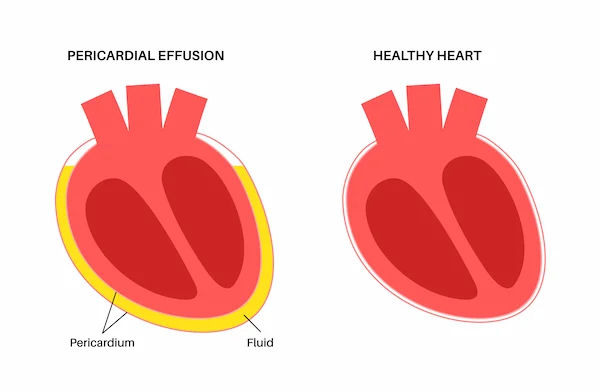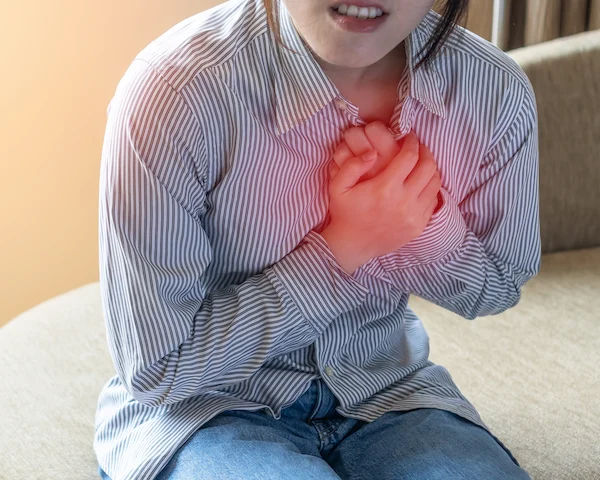- female
- 30 Years
- 29/01/2025
I'm wondering if it's normal for my heart rate to go up to 150-160 when I'm doing cardio at the gym or climbing stairs, and then drop to around 110 when I go for a walk. I've had several ECGs done and just had an echo two days ago, and everything seems fine. My resting heart rate usually falls between 55 and 100. Should I be concerned about these numbers?
Answered by 1 Apollo Doctors
It is normal for your heart rate to increase during physical activities like gym cardio, climbing stairs, and walking. Your heart rate of 150-160 during intense exercise and 110 during walking is within a normal range for physical exertion. Since your ECG and echo results are normal, there is likely no underlying heart condition causing these heart rate variations. It is important to stay hydrated and listen to your body during exercise. If you experience any chest pain, dizziness, or fainting, please stop the activity and seek medical attention.
Dr. Ranjith Suggests...
Consult a Cardiologist
Answered 04/07/2025
0
0

More Cardiology Health Queries
View allMy dad had a minor heart attack on November 7th, and he had a bypass operation back in 2008 in the UK. I'm really worriedis this something we should be super concerned about given his history? What can we do to prevent this from getting worse?
Since he had a minor heart attack, it's important for him to follow the doctor's recommendations for recovery. In addition to any prescribed medications, it's crucial for him to make lifestyle changes such as eating a healthy diet, exercising regularly, and avoiding smoking. Given his history of heart issues, he may be prescribed medications such as aspirin to prevent blood clots, a beta-blocker like Metoprolol to reduce strain on the heart, and a statin like Atorvastatin to lower cholesterol levels. It's important for him to take these medications as directed by his doctor to help prevent future heart issues.
Answered by 1 Apollo Doctors
My dad is 58 and has a lot going on with his health. He's been through CABG surgery and deals with CKD and diabetes. His weight is around 59-61 kg. Up until now, his blood pressure's been quite stable, but recently I noticed it's gone up to about 140150 over 8090. I'm getting pretty worried about it. Do you think there's something with his medication? He's on Orofer XT, Cardivas 6.25, Nefrosave forte, Alfoo tab, Ecospirin Gold, and Isolazine. Could any dietary changes help as well? Would love to know what you think.
Given your father's medical history and current medications, to help manage his increased blood pressure, you can consider adding an antihypertensive medication like Amlodipine 5mg once daily. Additionally, it's important to ensure he is following a low-sodium diet, rich in fruits, vegetables, and whole grains. Encouraging regular physical activity and stress-reducing activities can also be beneficial for his overall health.
Answered by 1 Apollo Doctors
I'm worried about my heart. I've done a bunch of tests like ECG, echo, TMT, and stress echo, and everything's come back normal. But every time I have something like gastric pain or even just diarrhea, I can't shake this fear that I'm having a heart attack. Could this be cardiac anxiety, or is there something else I should worry about? Also, my blood tests were normal except my vitamin D was 13.56 Ngml and B12 was 173.8 ofml. Should I be concerned about those levels?
It sounds like you are experiencing significant anxiety about your heart health, despite having normal cardiac test results. This type of anxiety, often referred to as cardiac anxiety or health anxiety, can cause you to worry excessively about having heart problems even when tests repeatedly show that everything is normal. Your low levels of 25-hydroxyvitamin D (13.56 ngmL) and vitamin B12 (173.8 pmolL) should be addressed, as deficiencies in these vitamins can contribute to overall feelings of fatigue and possibly anxiety. To manage your cardiac anxiety, consider the following steps: 1. Consult a mental health professional: Cognitive-behavioral therapy (CBT) can be very effective in managing health anxiety. 2. Lifestyle changes: Regular exercise, a balanced diet, and mindfulness or relaxation techniques can help reduce anxiety. 3. Vitamin supplementation: Your healthcare provider can recommend appropriate vitamin D and B12 supplements to address your deficiencies. Please discuss your anxiety and vitamin deficiencies with your healthcare provider to develop a comprehensive plan for managing your health and anxiety.
Answered by 1 Apollo Doctors
Disclaimer: Answers on Apollo 247 are not intended to replace your doctor advice. Always seek help of a professional doctor in case of an medical emergency or ailment.




